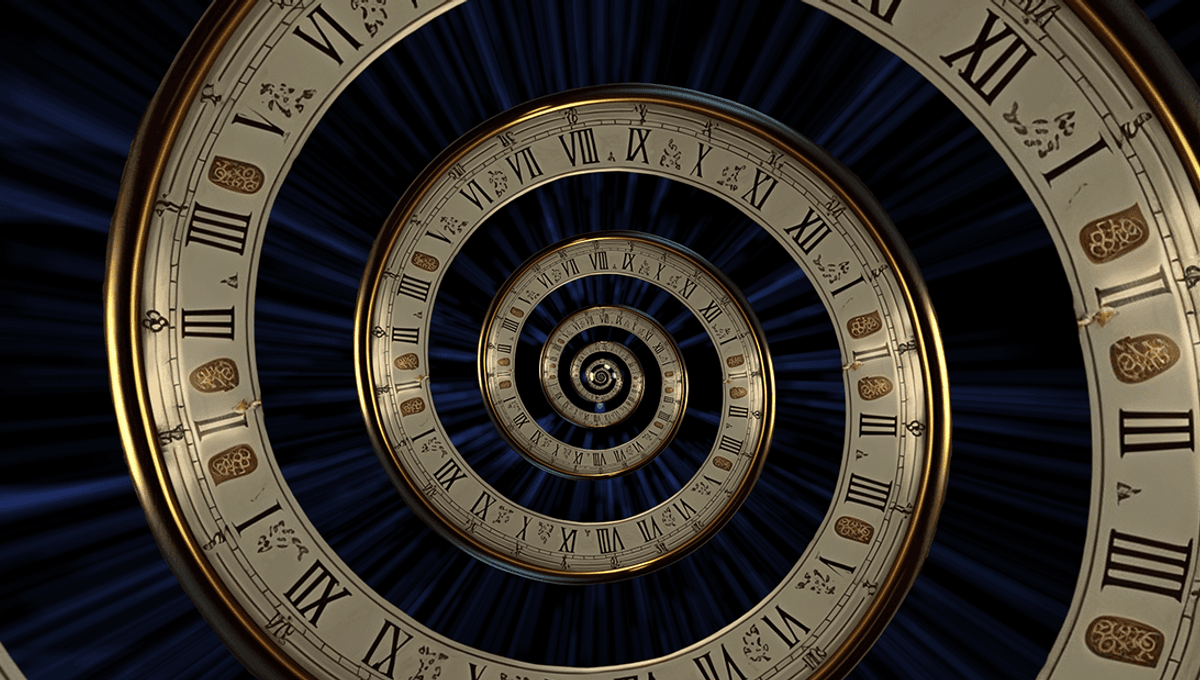
A physicist believes he may have solved the notorious “grandfather paradox”, suggesting that time travel to the past may not be ruled out by this particular branch of physics.
First off, what is the grandfather paradox? Unlike the bootstrap paradox, which gets a little messy, the grandfather paradox is fairly simple to explain. Say you had a time machine and a taste for familial homicide, you could go to the past and attempt to kill your grandfather before he had any children. If you were successful, your parent would not be born, and so you would not be born in order to go back in time to kill your own grandfather.
It is a thought experiment, of course, but one that seems to suggest that time travel to the past may be impossible, as it would lead to inconsistencies in the universe. Because of this, Stephen Hawking proposed the chronology protection conjecture, or the idea that there will be laws of physics yet undiscovered that would prevent time travel from happening.
Nevertheless, according to the physics we know so far, time travel to the past is not yet ruled out. One idea that comes out of Einstein’s work is that “closed timelike curves” could be possible, where spacetime is so warped (deliberately or by nature, say around a supermassive black hole) that an object or observer traversing it would be returned to their starting point.
“It is often assumed that, in a Universe with Closed Timelike Curves (CTCs), people can ‘travel to the past’. On the surface, this seems to be an obvious implication, since (on sufficiently large scales) one may view a timelike curve as the worldline of a hypothetical spaceship traveling across the spacetime,” Lorenzo Gavassino, a physicist at Vanderbilt University, wrote in his new paper.
“If such curve forms a loop, the spaceship returns to its starting point, in its own past. However, to confirm that this is an actual journey to the past, we must first discuss what happens to the passengers (i.e. to macroscopic systems of particles) as they complete the roundtrip.”
The laws of physics are generally time-reversal symmetric, roughly meaning that they would look the same if they were played in reverse. This is not true of the second law of thermodynamics, an observed statistical law of the universe. Simply put, everything tends toward disorder. Heat flows from hot areas to cold areas, and in an isolated system, entropy – the measure of disorder within a system – can only increase. The second law of thermodynamics shows us an arrow of time. If you see a system heading towards disorder, you can bet your bottom dollar that it is going forward in time. You cannot un-cook an egg.
In the new work, Gavassino attempted to describe what happens thermodynamically if a spaceship were to traverse a closed time-like curve, and emerge when they set off or before. During this trip, entropy must increase towards thermodynamic equilibrium according to the second law of thermodynamics, but for a consistent universe, it must also return to the non-equilibrium state before the time-like curve was entered. Taking the example of a single unstable particle bouncing around a spaceship, he says that the laws of physics as we understand them require that the particle return to its initial state.
“As one would expect, the particle spontaneously decays close to τ = 0, and it remains decayed for almost the whole journey. However, as τ approaches [the beginning of the loop], the particle is spontaneously reconstructed, over the same time that it took for it to decay,” Gavassino explains. “This mechanism is a direct consequence of the discretization of the energy levels, and it does not require us to fine-tune the initial conditions.”
In the work, he suggests that there is a point where entropy becomes maximized, “and the second law of thermodynamics begins to turn back”. All this sounds fun, but here’s the catch; according to the work, you would lose all memory of anything that happened during the loop.
“Memory may be schematically modeled as the result of an interaction, where an object leaves traces of its initial state in the later state of a ‘memory-keeper’, which may be a measurement device or a living being,” he writes.
Modeling the memory collection process, he finds that “any memory that is collected along the CTC [closed timelike curve] will be erased by Poincaré recurrence before the end of the loop”. You may traverse the loop, but you will not collect any new information, in a consistent universe, and the universe will return you to your initial starting position with entropy still in tact. In terms of the grandfather paradox, the universe would evolve in a way that keeps it self-consistent, returning time travelers to their initial conditions.
“Most physicists and philosophers in the past have argued that if time travel exists, nature will always find a way to prevent contradictory situations,” Gavassino told Live Science. “A ‘self-consistency principle’ was introduced, suggesting that everything should align to create a logically coherent story. My work provides the first rigorous derivation of this self-consistency principle directly from established physics. Specifically, I applied the standard framework of quantum mechanics – without additional postulates or controversial assumptions – and demonstrated that the self-consistency of history naturally follows from quantum laws.”
While a fun idea, he does not see it as any proof of the possible existence of closed time-like curves.
“Rather, the take-home message is that, in a hypothetical Universe with CTCs, time travel would not take place in the form that is usually depicted in science fiction. In fact, on CTCs, thermal fluctuations destroy macroscopic causation, and erase all memories,” he concludes. “As it often happens, Nature is more creative than us.”
The paper is published in Classical and Quantum Gravity.
[H/T: Live Science]
Source Link: Physicist Thinks He May Have Solved The Time Travel "Grandfather Paradox", But There's A Catch